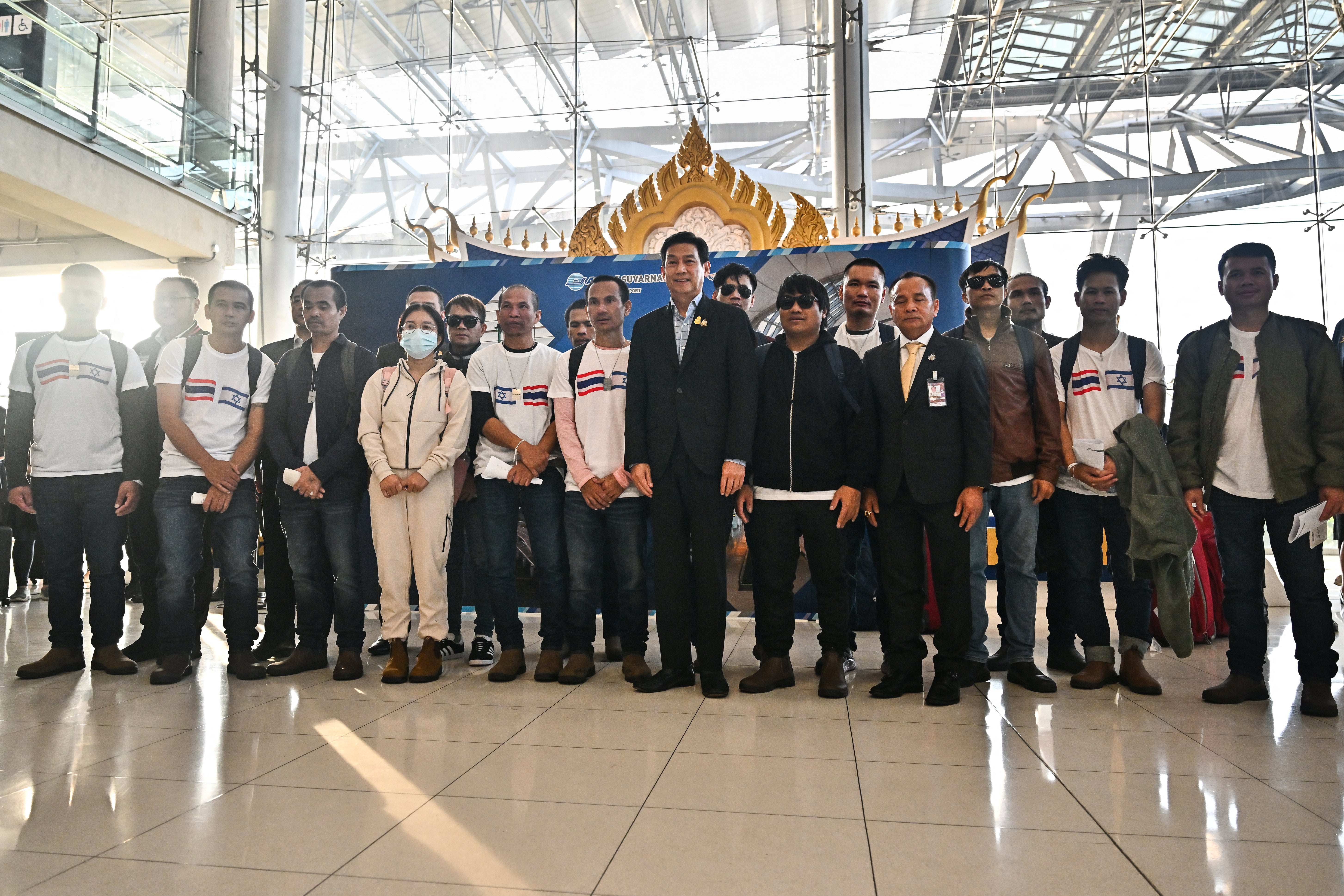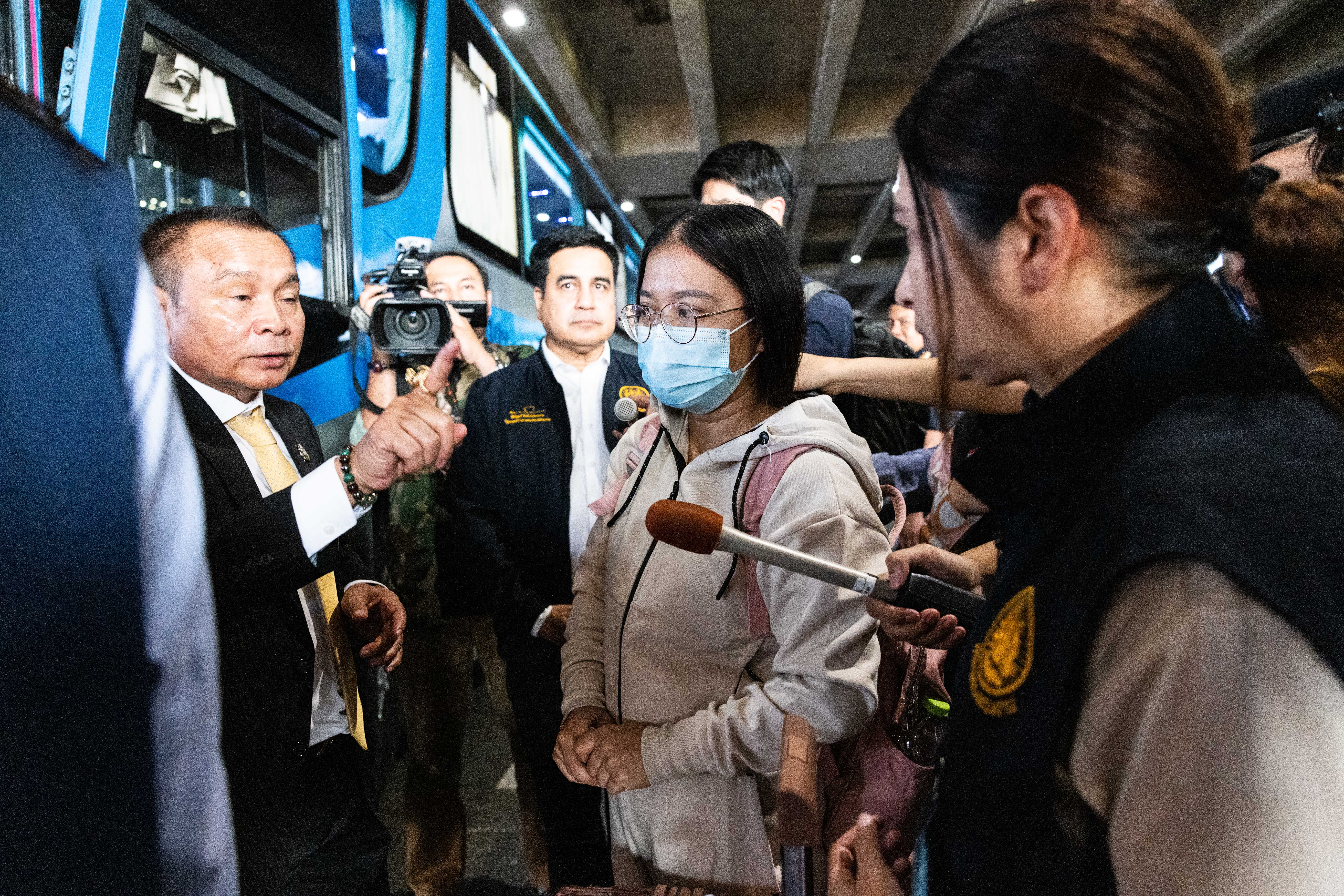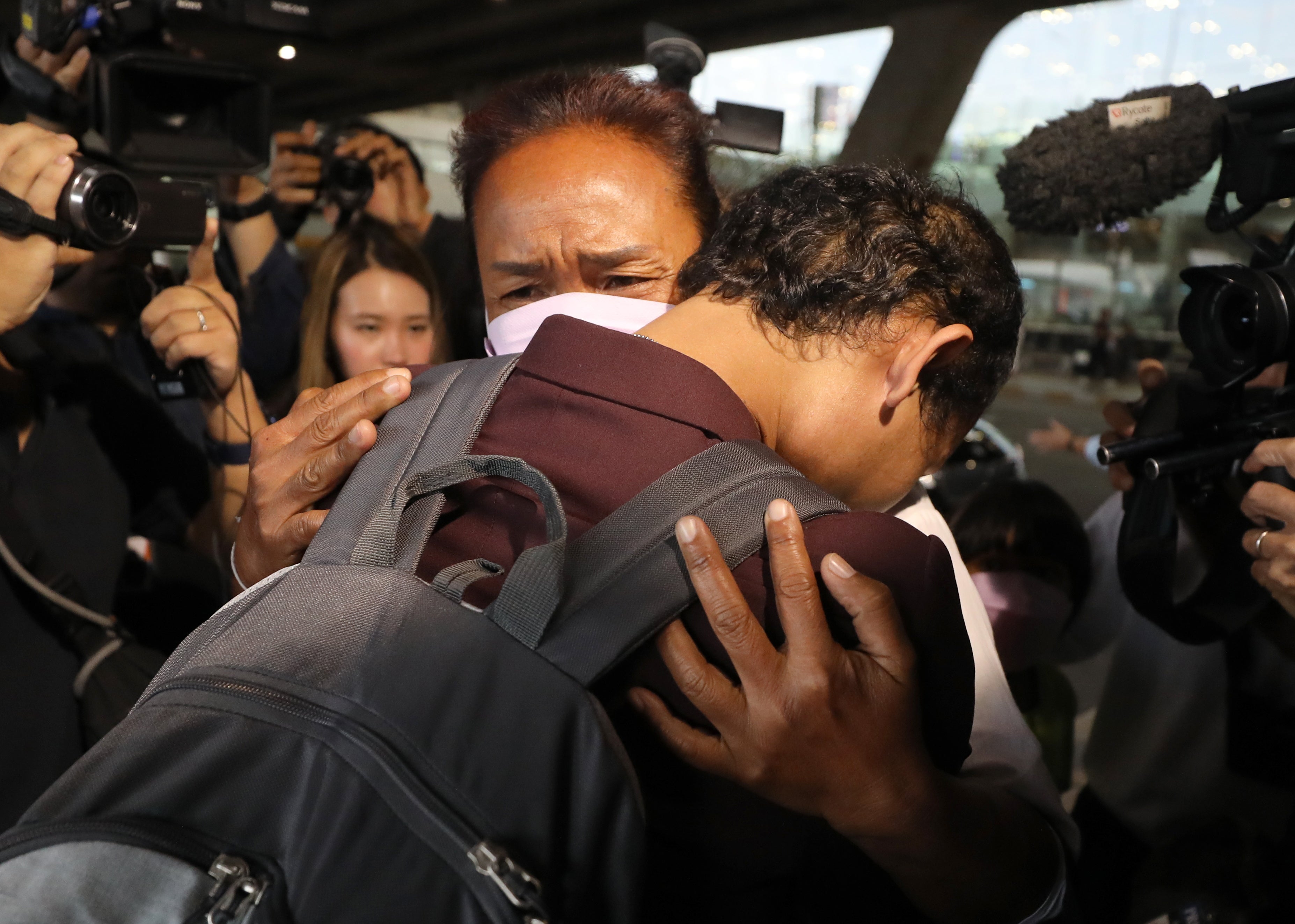What happened to the 32 Thai nationals taken hostage by Hamas?
Thai foreign minister vows to ‘ensure remaining hostages receive freedom’
Your support helps us to tell the story
From reproductive rights to climate change to Big Tech, The Independent is on the ground when the story is developing. Whether it's investigating the financials of Elon Musk's pro-Trump PAC or producing our latest documentary, 'The A Word', which shines a light on the American women fighting for reproductive rights, we know how important it is to parse out the facts from the messaging.
At such a critical moment in US history, we need reporters on the ground. Your donation allows us to keep sending journalists to speak to both sides of the story.
The Independent is trusted by Americans across the entire political spectrum. And unlike many other quality news outlets, we choose not to lock Americans out of our reporting and analysis with paywalls. We believe quality journalism should be available to everyone, paid for by those who can afford it.
Your support makes all the difference.Uncertainty looms over the future of the nine Thai nationals still held hostage by Hamas in Gaza following the end of a week-long ceasefire between the militants and Israel.
Foreign minister Parnpree Bahiddha-Nukara on Monday welcomed the return of two more of the 23 Thai nationals freed so far. The pair, who arrived back in Thailand at the Udon Thani International Airport, were released during the Qatar-brokered ceasefire last week.
At least 32 Thai labourers were among the nearly 250 people abducted by Hamas during their 7 October attack on southern Israel, when gunmen stormed through a border fence and killed 1,200 people, mostly Israelis.
Officials in Thailand said 29 Thai citizens were also killed during the rampage.
Bangkok has been engaging for weeks in diplomatic talks to free its nationals held by Hamas, with high-level ministers making trips to the Middle East to hold direct dialogue with the militants. Thai officials have also held talks with Iran, Qatar and Egypt to secure the hostages' release.
Thai politician Areepen Uttarasin, one of the lead negotiators, said last month said he was assured that the Thai hostages were safe and well looked after and they would be released at the "right time".
During the Qatar-brokered temporary ceasefire last week, Hamas released 23 Thai nationals along with nearly 80 Israelis. On the first day of the ceasefire, 10 Thai hostages were released without any conditions set by Hamas.
The twice-extended ceasefire ended with daybreak on Friday after Israel accused Hamas of violating the truce by firing rockets into villages on the southern border.
Qatari and Egyptian mediators said they were still in contact with both sides and trying to keep the negotiations open for the resumption of the ceasefire.
Israel said around 125 men were still being held hostage by Hamas and other militant groups in Gaza.

Around 30,000 Thai labourers worked in the agriculture sector before the war, making them one of Israel's largest migrant worker groups. Nearly 9,000 of the migrant workers have been repatriated so far, Thai officials said.
The first batch of 17 hostages landed in Bangkok last Thursday to a rousing welcome. Six other freed hostages were left behind temporarily in Israel because doctors found them unfit to travel.
The freed hostages, several clad in white T-shirts with a picture of Thai and Israeli flags, arrived on a flight operated by the Israeli airline El Al, and were rushed to a hectic airport news conference.
Prime minister Srettha Thavisin welcomed the Thai nationals via video call. “All Thais were worried about you,” she told them.

While there were no dramatic stories from their captivity at the news conference, the group used the opportunity to ask for a moment of silence to mourn the Thais killed in the attack.
"I’m saddened that my 39 fellow workers died, and would like everybody to take a moment to mourn their loss,” the group’s representative Uthai Saengnuan said.
The only woman among the Thai hostages – Nattawaree Moolkan – cried tears of joy, saying: “Thank you for all your encouragement.”

Pornsawan Pinakalo, a 30-year-old farmer who was working in a potato field when Hamas attacked Israel, said he wanted to see all the Thai captives released.
"It would be better if all of our friends could come back,” the 30-year-old was quoted by Al Jazeera as saying. “When I was there I tried not to think too much about what might happen, because I was sad I wouldn’t see my family again.”
He was picked up from the airport by his father, while the others headed for their hometowns in a bus organised by the government.
They were pitured as Pornsawan kneeled to hug his father, and they both cried with joy. “I thought we’d lost him and now he’s back. It’s like the meaning of his name: a blessing from heaven,” his father, Kong Panasudlamai, told reporters.
Thailand’s foreign minister said the ”support of friends and allies” helped secure the release of the hostages and that Bangkok was continuing its efforts to get the other captive Thai nationals out of Gaza.
"We will continue to work on this mission to ensure that the remaining nine hostages receive freedom and return to Thailand," Mr Bahiddha-Nukara told reporters.

Join our commenting forum
Join thought-provoking conversations, follow other Independent readers and see their replies
Comments